Acute malnutrition in young children remains a global problem, with 13.7 million children suffering from severe acute malnutrition in 2022. In a study published in The Lancet, researcher Sarah King…
Anastasia Marshak
Research Assistant Professor
Research Assistant Professor, Friedman School
Contact
Working with Feinstein since 2006
Based in Somerville, MA

Click here to read Anastasia’s Young Scholar Profile.
Anastasia Marshak’s research at Feinstein aims to make humanitarian programming more appropriate and impartial by showing the value of and advocating for more data- and evidence-driven approaches. Her main body of work focuses on improving the field’s understanding of the drivers of malnutrition in complex contexts. As part of this she develops and applies improved methods to identify those drivers. Anastasia also supports improved programming in the areas of early marriage and the long-term impact of conflict on livelihoods and access to services applying a variety of methods, including program evaluations. Recently, Anastasia studied the effects of human rights abuses that took place during attacks on IDP camps in northern Uganda as part of a trial for the International Criminal Court (ICC). In addition to her research, Anastasia teaches introductory and intermediate statistics at the Friedman School.
Anastasia has expertise in quantitative analysis, research design, and nutrition. Prior to joining Feinstein, Anastasia worked for the MIT Poverty Action Lab and the World Bank in Sierra Leone.
She holds a B.S. in quantitative economics and international relations from Tufts University and an M.A. in economics from Boston University. She holds a Ph.D. from the Friedman School of Nutrition in the Food Policy and Nutrition Program, with a focus on humanitarian assistance.
RESEARCH INTERESTS
REGIONAL FOCUS
COURSES TAUGHT
- Statistical Methods for Nutrition Science and Policy (NUTR207), Fall Term
- Statistical Methods for Health Professionals I (NUTB250), Fall Term
- Statistical Methods for Health Professionals II (NUTB350), Spring Term
MOST CITED BOOKS & ARTICLES
MOST RECENT EXTERNAL PUBLICATIONS
- Anastasia Marshak, Gwenaelle Luc, Anne Radday, and Helen Young. 2021. “Seasonality of acute malnutrition and its drivers: a case study from eastern Chad” Field Exchange.
- Anastasia Marshak, Aishwarya Venkat, Helen Young, and Elena Naumova. 2021. “How Seasonality of Malnutrition is Measured and Analyzed.” International Journal of Environment Research and Public Health 18(4).
- Anastasia Marshak, Helen Young, Anne Radday, and Elena Naumova. 2020. “Sustained Impact of a Multi-Sectoral Intervention on Child Nutrition Two Years after Program Completion.” Maternal and Child Nutrition.
- Anastasia Marshak, Helen Young, Anne Radday, and Elena Naumova. 2020. “Sensitivity of Nutrition Indicators to Measure the Impact of a Multi-Sectoral Intervention: Cross-sectional, Household, and Individual Level Analysis.” International Journal of Environment Research and Public Health 17(9).
RECENT NEWS
In Somalia, approximately 3.2 million people are experiencing crisis levels of food insecurity, and approximately 800,000 people are experiencing more severe emergency levels of food insecurity. Overall, child wasting has…
On February 28, 2024, the International Criminal Court ordered reparations of more than $56 million to victims of Ugandan rebel commander Dominic Ongwen. Feinstein Visiting Fellow Teddy Atim was one…
The United Nations, women’s groups, and human rights groups are facing criticism for not quickly condemning Hamas fighters for raping and sexually violating Israelis during the Oct. 7, 2023, attack….
Dan Maxwell and colleagues including, Peter Hailey and Anastasia Marshak published “Using the household hunger scale to improve analysis and classification of severe food insecurity in famine-risk conditions: Evidence from…
As part of the Nawiri program in Kenya, Helen Young, Elizabeth Stites, Anastasia Marshak, and Achiba Gargule led a three-day Analysis Workshop in Kenya. The workshop brought together Nawiri partners…
Anastasia Marshak, Teddy Atim, and Dyan Mazurana published their article, “International Humanitarian Law Violations in Northern Uganda: Victims Health, Policy, and Programming Implications,” in the Journal of Public Health Policy…
Feinstein International Center faculty and researchers published three articles in May issue of the Field Exchange. Click here to download the full issue. Merry Fitzpatrick et al’s article, “Kwashiorkor –…
Anastasia Marshak, Aishwarya Venkat, Helen Young, and Elena Naumova published “How Seasonality of Malnutrition Is Measured and Analyzed” in the International Journal of Environmental Research and Public Health. This article…
Dyan Mazurana, Anastasia Marshak, and Kinsey Spears discuss child marriage in the latest issue, “Children and War,” published by the International Review of the Red Cross (IRRC). This article, titled…
Anastasia Marshak, Helen Young, Anne Radday, and Elena Naumova published a study in the International Journal of Environmental Research and Public Health (IJERPH) as part of the special issue, “Early…
Anastasia Marshak, Helen Young, Anne Radday, and Elena Naumova had their paper, “Sensitivity of Nutrition Indicators to Measure the impact of a Multi-Sectoral Intervention: Cross-Sectional Household, and Individual Level Analysis,”…
On Tuesday March 10, Dyan Mazurana, Anastasia Marshak, and Tom Dannenbaum presented findings from a Feinstein assessment of the lasting effects of massacres conducted by the Lord’s Resistance Army (LRA)…
The Daily monitor, one of the major daily newspapers in Uganda, published an article of “School’s Out: Why Northern Uganda’s Girls and Boys Are Not Getting an Education and What…
Every three years, the Active Learning Network for Accountability and Performance (ALNAP) releases its flagship State of the Humanitarian System Report. They launched the 2018 report in December and included…
A Feinstein team including Helen Young, Andy Catley, Elizabeth Stites, and Anastasia Marshak held a one day workshop with the Food and Agriculture Organization of the United Nations (FAO) in…
On May 4, 2018, Teddy Atim testified at the International Criminal Court (ICC) at the trial of former Lord’s Resistance Army (LRA) commander, Dominic Ongwen. Ongwen has been charged for…
On March 28, 2018 Malnutrition Deeply published and article, “After Haiti, Rethinking How to Address Malnutrition in an Emergency.” This article relies heavily on work conducted by Helen Young, Anastasia…
Disasters Journal published Teddy Atim, Dyan Mazurana, and Anastasia Marshak ‘s paper on their study of women survivors of wartime sexual violence. Women survivors face challenges in gaining acceptance on return to…
Rural 21 The International Journal for Rural Development published an article co-authored by Concern Worldwide’s Cecilia Benda and Feinstein’s Anastasia Marshak. The article discusses how to build resilience among rural…
Anastasia Marshak describes Feinstein’s work in collaboration with Concern Worldwide on the BRACED (Building Resilience and Adaptation to Climate Extremes and Disasters) website. The aim of the work is to…
On April 12, 2017 Anastasia Marshak, Helen Young, and Concern Worldwide colleague Michelle Wilson were hosted by USAID Office of Foreign Disaster Assistance to present findings from her impact evaluation…
In its February 2017 issue, the Field Exchange presents research findings from a study conducted in Chad by Anastasia Marshak, Helen Young, and Anne Radday. The study was a randomized…
Anastasia Marshak presented at the February 8, 2017 Concern Worldwide Building Resilience against Climate Extremes and Disasters (BRACED) dissemination conference in N’Djamena, Chad. The conference brought together representatives from the…
On December 1, Feinstein researchers published an article in Third World Thematics. The article, “Disability and recovery from war in northern Uganda,” explores the prevalence and impact of disabilities resulting from…
On November 9, 2016, Anastasia Marshak presented findings from a randomized control trial that she led in the Goz Beida Chad from 2012 to 2015 at the Action Against Hunger…
On Friday, October 14, 2016 Dan Maxwell, Anastasia Marshak, and Merry Fitzpatrick discussed recent Feinstein research projects and findings with the Tufts Nutrition Council. Anastasia discussed findings from an impact…
On Monday October 10, Feinstein researcher Anastasia Marshak presented at the seventh Annual Nutrition Epidemiology Conference (ANEC VII). The topic for this year’s conference is “Nutrition Dynamics in Africa: Opportunities and…
Elizabeth Stites and Anastasia Marshak published their article, “Who are the Lonetia? Findings from southern Karamoja, Uganda” in the June 2016 edition of the Journal of Modern African Studies. The…
The first ever World Humanitarian Summit took place in Istanbul, Turkey on May 23-24, 2016. The summit aimed to set a forward-looking agenda for humanitarian action that addresses future humanitarian…
FEINSTEIN PUBLICATIONS
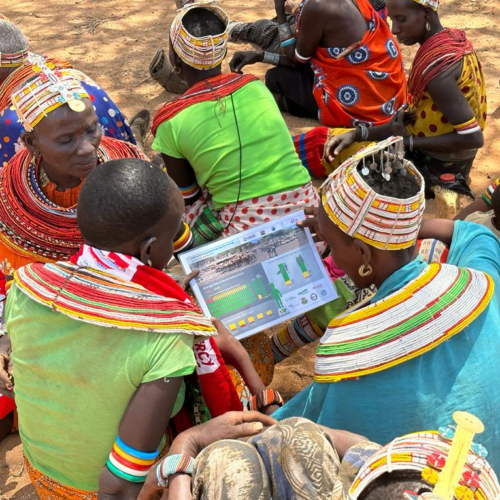
This report presents the final findings from the USAID Nawiri longitudinal study, which investigated the drivers of the persistently high rates of acute malnutrition from September 2021 to September 2023.
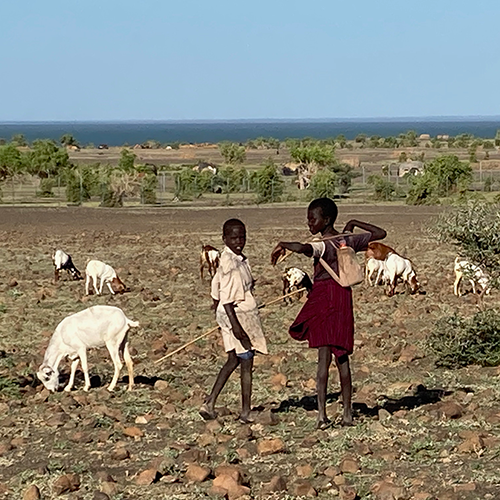
This learning brief examines the drivers of malnutrition in Isiolo and Marsabit Counties and their implications for policy and programs.
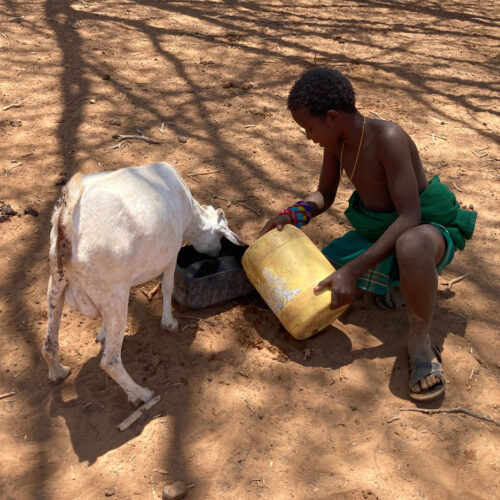
This learning brief explores the continuity and changes to livelihoods in select sites in Isiolo and Marsabit Counties, Kenya, and reviews the implications of the continuity and the changes on the drivers of child acute malnutrition.
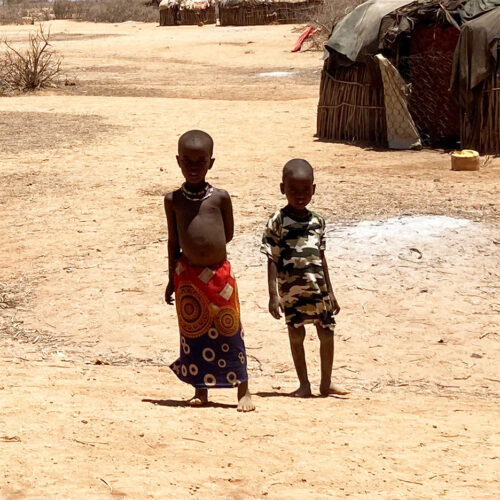
This learning brief presents preliminary findings about the cause (drivers) of persistently high rates of child acute malnutrition in select sites in Isiolo and Marsabit Counties.
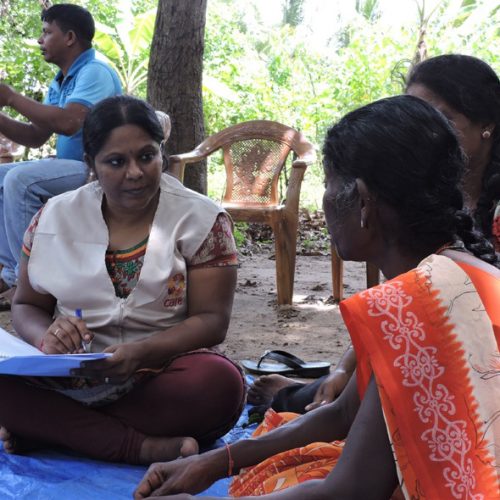
This report reviews progress, outlines barriers to further progress, and makes recommendations to advance gender equality in the humanitarian system.

This paper examines the role of marital status and motherhood on schooling experience and educational interruption, attainment, and aspirations in South Sudan and the Kurdistan Region of Iraq.
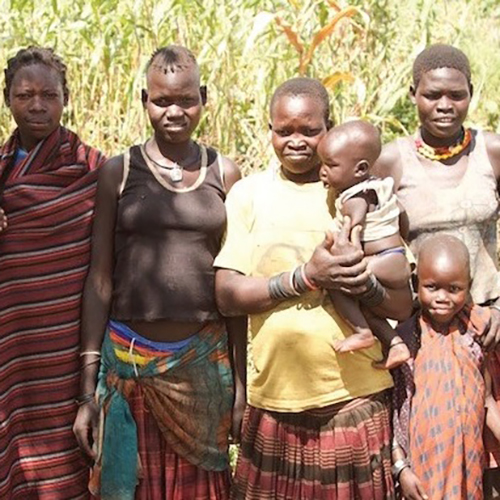
This brief investigates the perceptions and experiences of young women related to wealth, livelihoods, and aspirations in Uganda’s Karamoja sub-region.
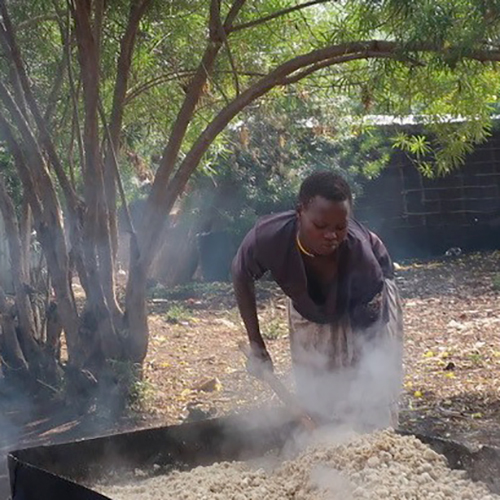
This brief investigates how wealth, wealth equality, and food security have changed in specific villages in four districts in the Karamoja sub-region of Uganda from 2018 to 2021/22.
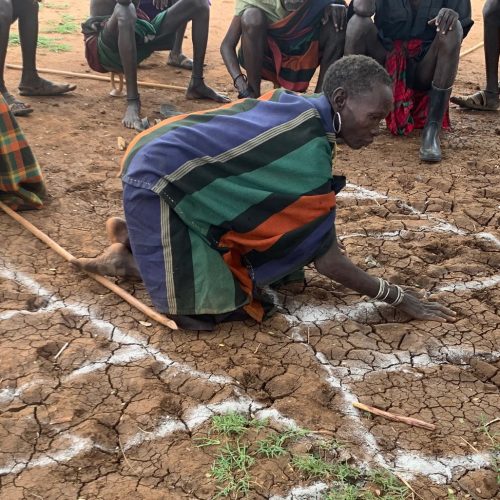
This study aimed to better understand changes in and perceptions of wealth and equality in four counties in the Karamoja sub-region of Uganda.

Very little is known about the experiences of female youth who marry under 18 and later become separated, divorced, or widowed. This briefing paper underscores the unique vulnerabilities and challenges that these youth face in the Kurdistan Region of Iraq (KRI) and South Sudan.
This briefing paper outlines the situation of displaced female youth—unmarried, married, divorced, widowed—from a mental health and psychosocial functioning (MHPSS) lens.

This briefing paper examines the experiences of life after marriage for female youth who married under the age of 18 in South Sudan and the Kurdistan Region of Iraq. It describes how early marriage affects education, mental health, protection issue, and family dynamics.

This briefing paper focuses on the decision-making processes that led displaced female youth to marry early, based on their experiences in the Kurdistan Region of Iraq and South Sudan.
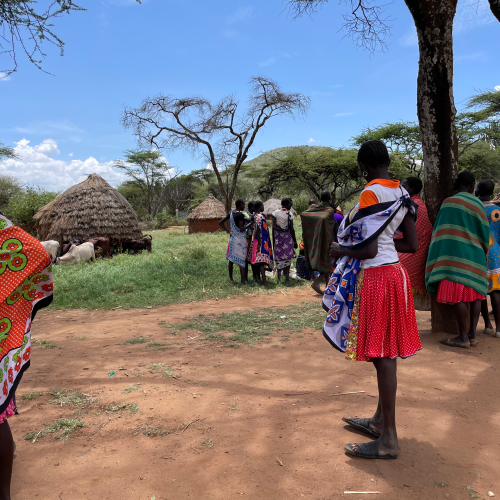
This paper describes how market access is associated with household food security and dietary diversity in the Karamoja region of Uganda in 2018 and 2019.
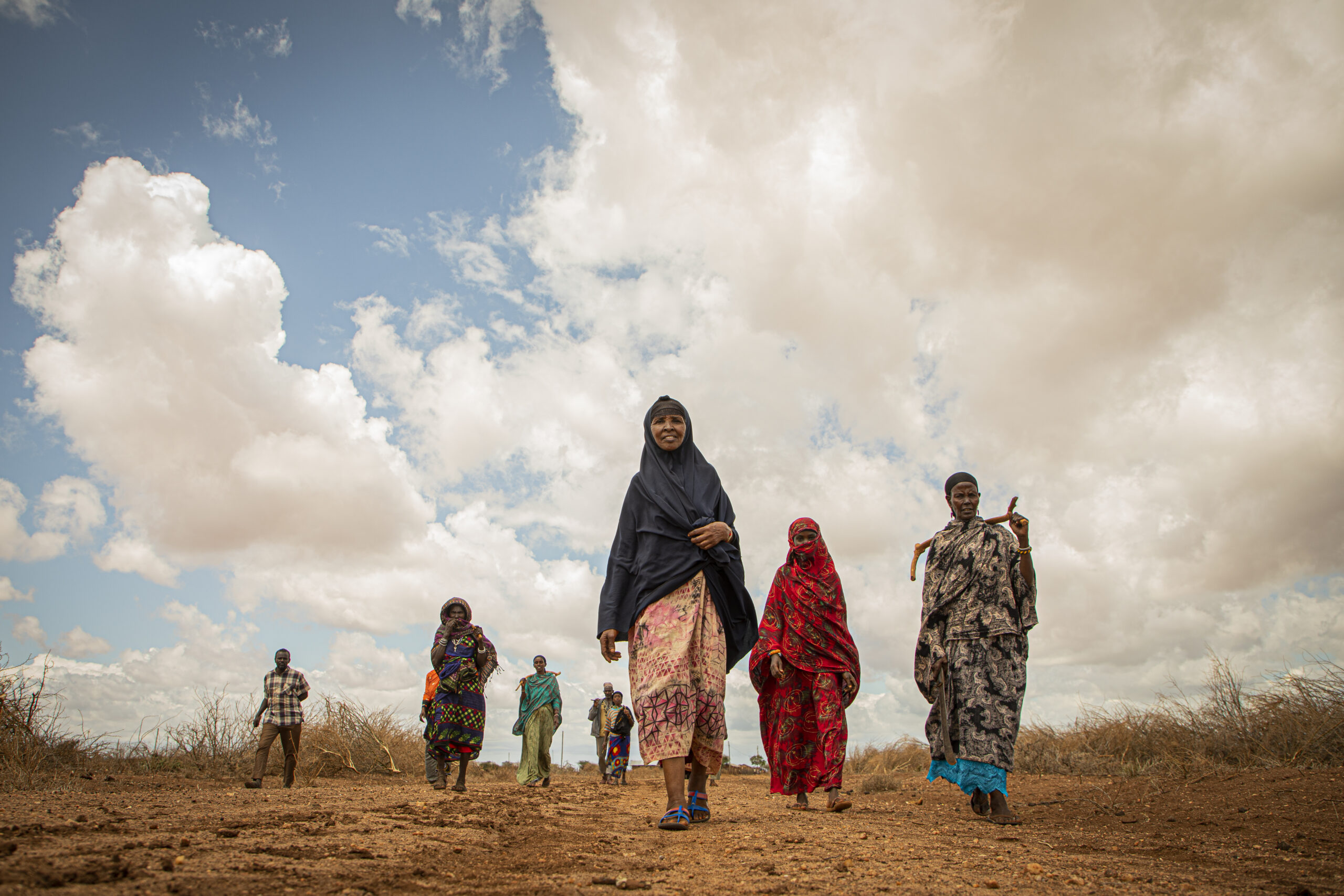
This desk study provides an overview of the patterns and variability in climate, conflict, disasters, and nutrition outcomes using secondary data for Marsabit and Isiolo counties in northern Kenya.
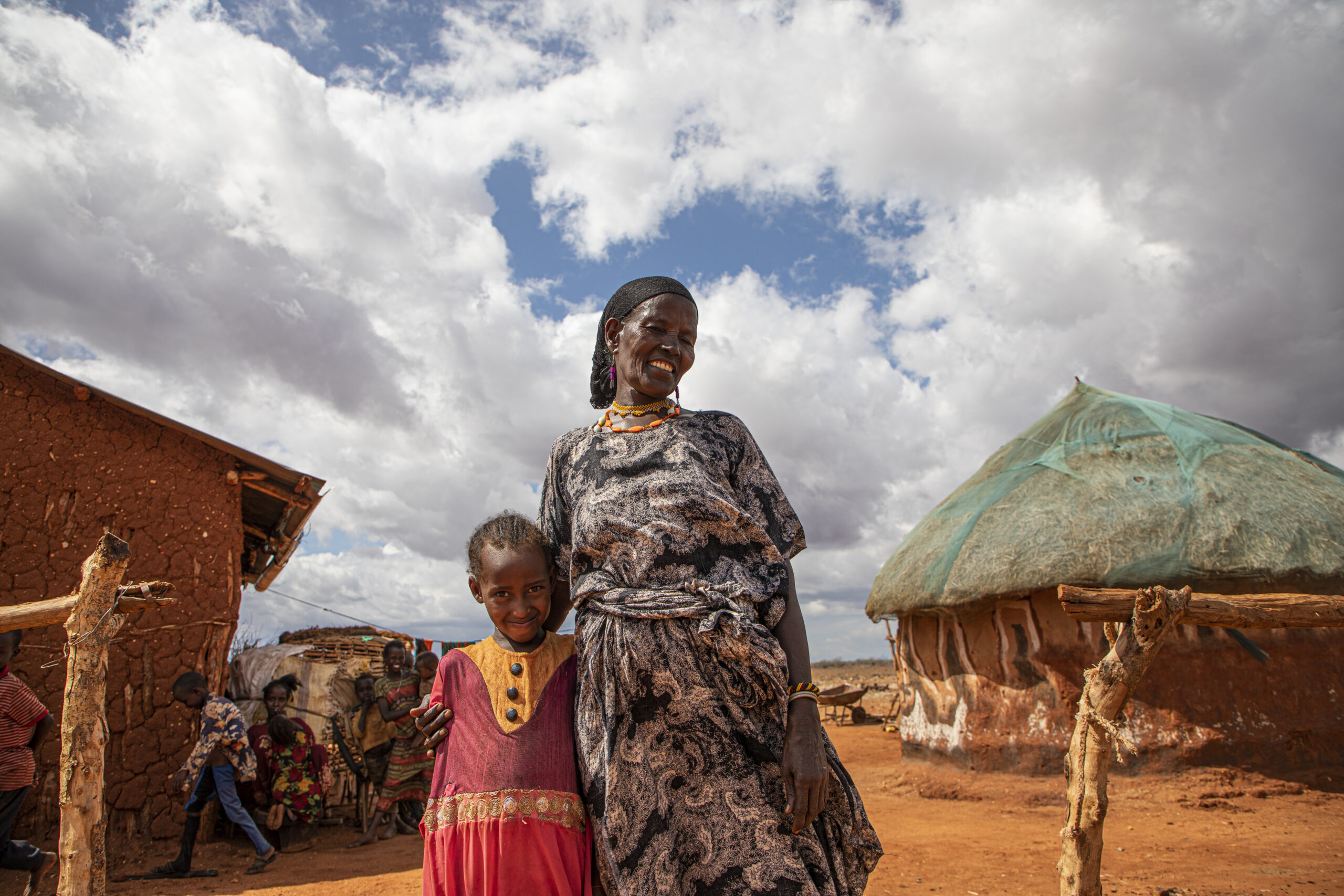
The review confirms that acute malnutrition is a problem in the Kenya ASALs, and that most of the drivers are under-studied, and yet several specific assumptions permeate the literature and recommendations.
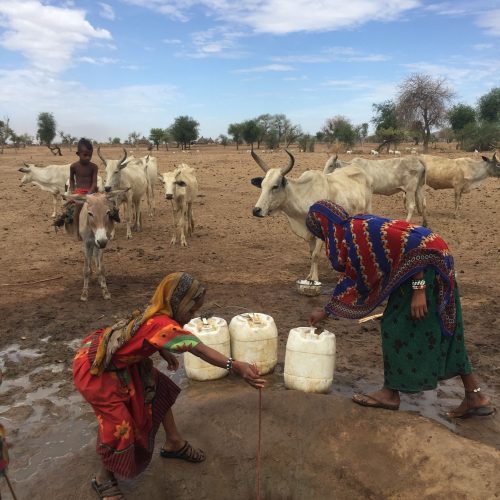
This report explores the seasonal patterns of acute malnutrition and its key drivers in the Goz Beida Region of Chad.
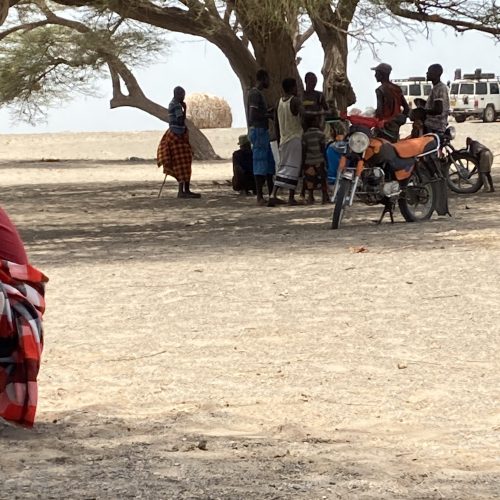
This report describes findings from a preliminary stakeholder survey on perceptions of malnutrition in northern Kenya.
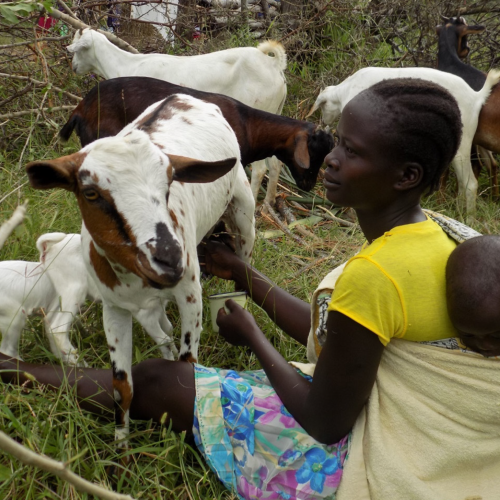
This briefing paper is based on a midline quantitative survey for the Apolou project in the Karamoja sub-region of Uganda.
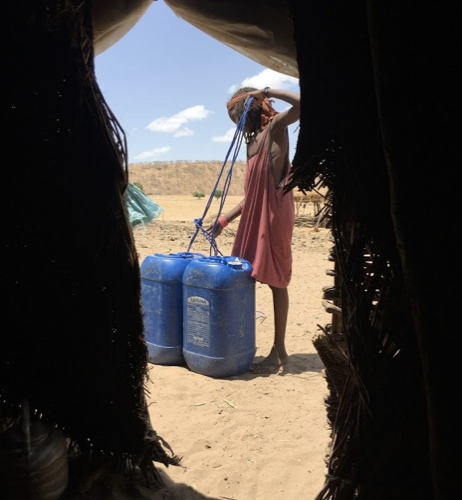
Ce document présente les motifs de la saisonnalité de la malnutrition aiguë et les différences des motifs et les facteurs pour les filles et les garçons dans le zone Goz Beida dans l’est du Chad.
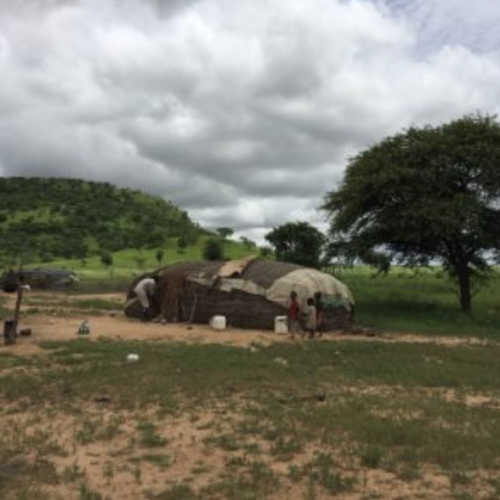
Ce document présente les motifs de la saisonnalité de la malnutrition aiguë et les différences des motifs et les facteurs pour les filles et les garçons dans le zone Goz…
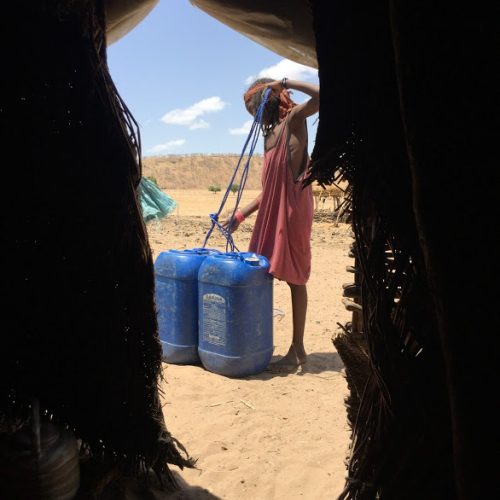
This brief summarizes the seasonal patterns of acute malnutrition and differences in seasonal patterns and possible drivers for boys and girls in the Goz Beida Region of eastern Chad.
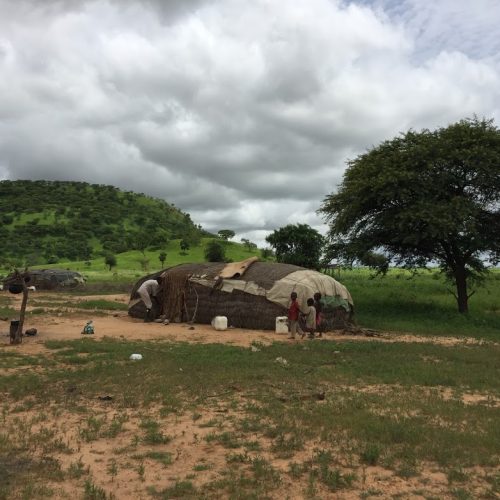
This brief summarizes the seasonal patterns of acute malnutrition and its key drivers in the Goz Beida Region of Chad.
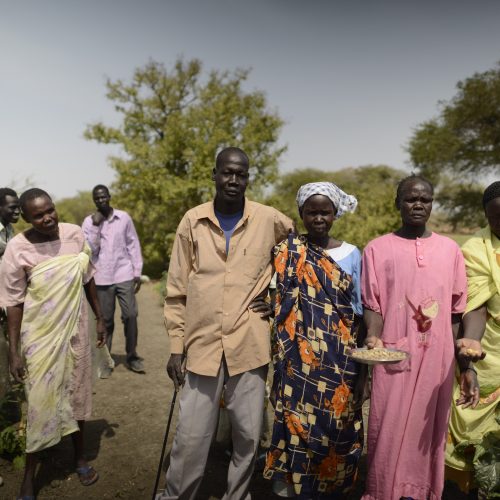
This study looked at how social connections during times of crisis enable populations to manage shocks and stresses in South Sudan.
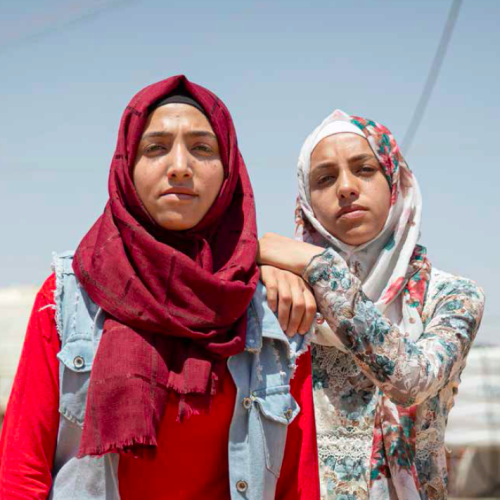
This report is a comprehensive and user-friendly concept note for a database on child marriage in humanitarian settings, a first step in eradicating the problem.
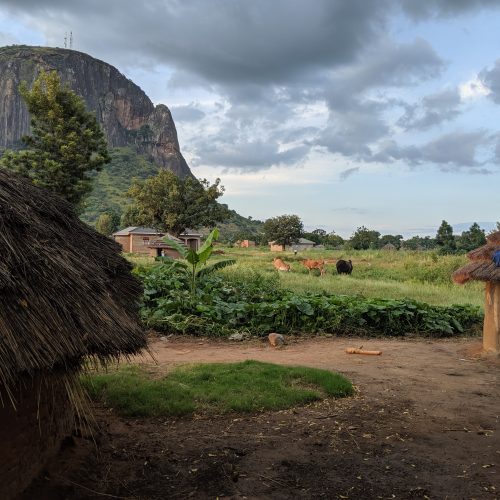
This report describes household recovery in northern Uganda from the 20 years of conflict between the Lord’s Resistance Army (LRA) and the Government of Uganda (GoU) by following the same…
This is the third in a series of three briefing papers that form part of the Mind the Gap: Bridging the Research, Policy, and Practice Divide to Enhance Livelihood Resilience…
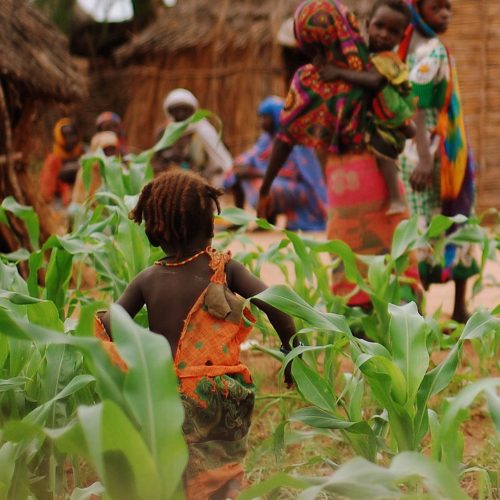
This report highlights major new findings on the seasonal patterns of child malnutrition and their links to climate variability, conflict, and livelihood systems in Chad, Sudan, and South Sudan.

This brief highlights major new findings on the seasonal patterns of child malnutrition and their links to climate variability, conflict, and livelihood systems in Chad, Sudan, and South Sudan.

This paper synthesizes findings from four studies on youth migration and resilience in different urban contexts. This work emerges from a collaboration between Save the Children US (Save US) and…
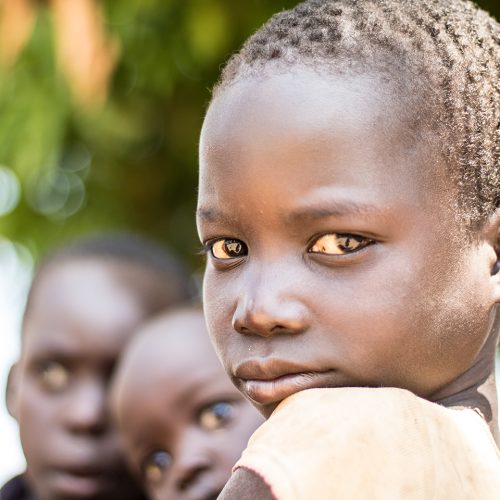
This working paper presents findings from research examining the sharp decrease in girls and boys school attendance that was witnessed between 2013–2018 in northern Uganda.
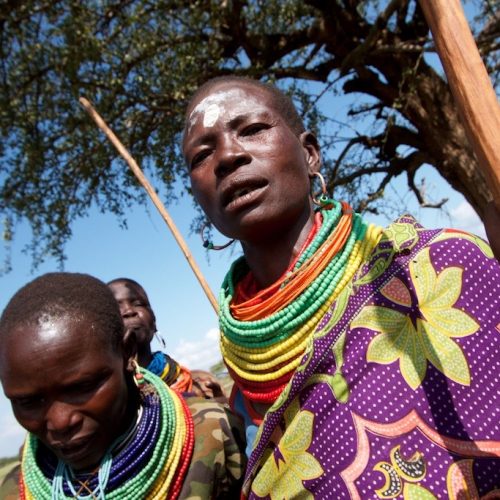
This report reflects findings from the baseline quantitative study of a four-year research project in the Karamoja sub-region of Uganda. We describe different aspects of wealth, such as animal-related wealth…
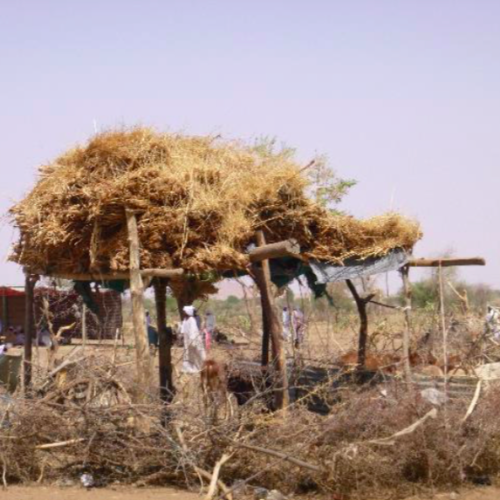
This publication presents a literature review activities in covering topics related to the natural environment and natural resource management in the Darfur region. This desk review serves as a foundation and reference for the NRM field studies and series of briefs, as part of the Taadoud II program, as well as supporting the development of training materials.
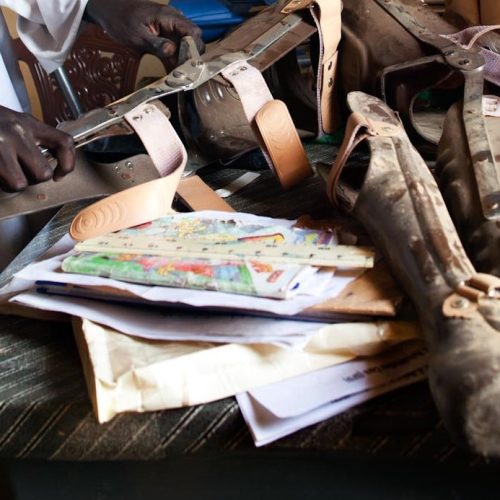
This large-scale study from northern Uganda investigates how experiences of alleged war crimes or crimes against humanity relate to victims’ disability and how these experiences affect food security, wealth and access to basic services, including their access to basic and therapeutic healthcare over time.
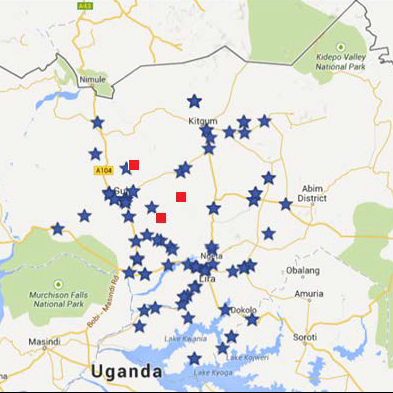
This is an independent, in-depth assessment of the victims’ experiences before, during, and after the attacks at three internally displaced camps in northern Uganda. These attacks are at the heart of the International Criminal Court case against Dominic Ongwen, a former commander in the Lord’s Resistance Army. In May 2018, the report was submitted as evidence, presented, and defended before the ICC.
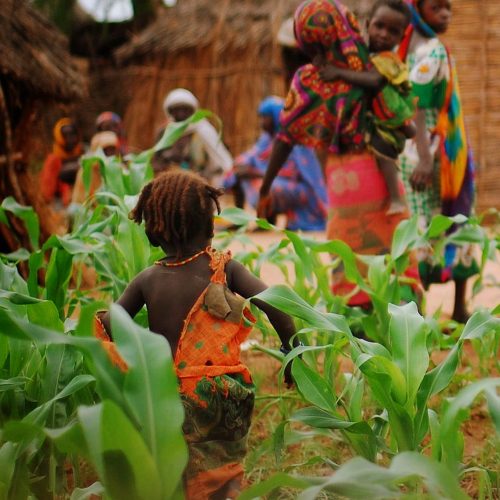
The widespread scale and long-lasting nature of “persistent GAM” means that it must be a policy and programming priority. This brief sheds light on the issue and provides strategies for policy and practice.
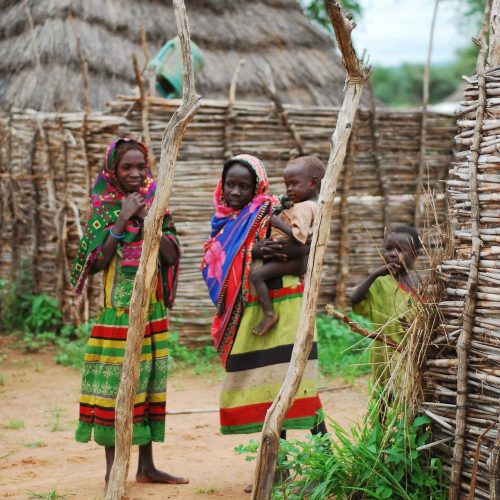
The widespread scale and long-lasting nature of “persistent GAM” means that it must be a policy and programming priority. This paper sheds light on the issue and provides strategies for policy and practice.
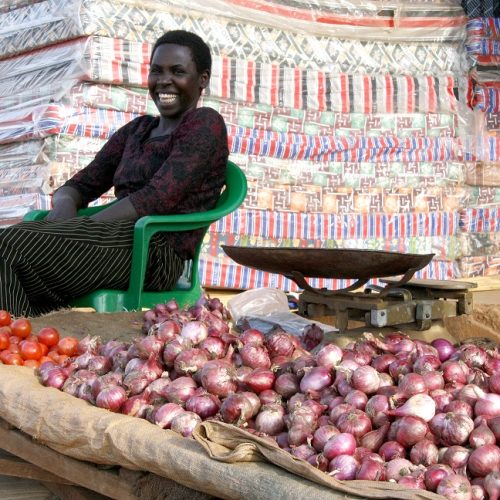
This report presents a series of challenges to conventional thinking around livelihood recovery for war-affected populations.
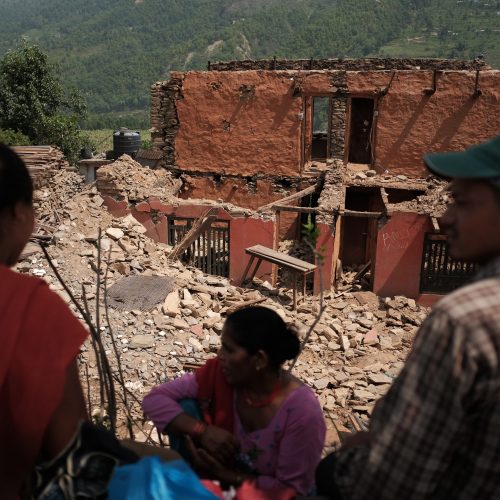
This is an evidence brief, accompanying the full systematic review on shelter in humanitarian settings.

What effects do humanitarian interventions that support affected populations’ own shelter self-recovery processes have on household-level outcomes following a crisis? And what factors have helped or hindered the implementation of such interventions? This evidence synthesis represents the first ever attempt to systematically review the existing evidence for an answer.
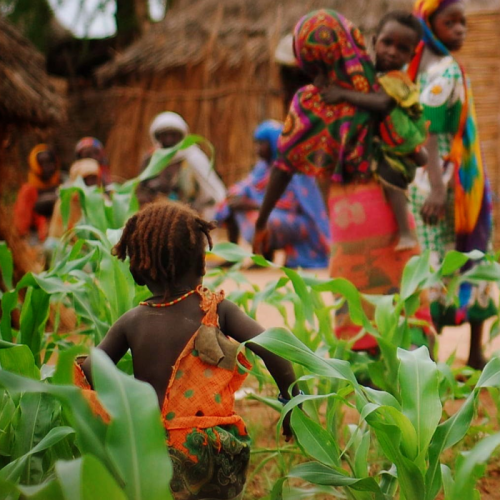
This report describes the results of an impact assessment on Concern Worldwide’s program in eastern Chad aimed at reducing malnutrition.
This is the French version of the report, Water, Livestock, and Malnutrition: Findings from an Impact Assessment.

This protocol details the methodology for an evidence synthesis on shelter in humanitarian crises. The evidence synthesis asks: “What is the evidence on the effectiveness and efficiency of interventions that…
This report presents new data on insecurity and changing livelihoods from the perspective of male youth in southern Karamoja, Uganda, and includes an evaluation of a pilot communication and relationship…
In 2012/13, the Secure Livelihoods Research Consortium (SLRC) implemented the first round of an original sub-regional panel survey in northern Uganda aimed to produce data on livelihoods, access to and…
In 2012/13, the Secure Livelihoods Research Consortium (SLRC) implemented the first round of an original sub-regional panel survey in northern Uganda aimed to produce data on livelihoods, access to and…
In 2012/13, the Secure Livelihoods Research Consortium (SLRC) implemented the first round of an original sub-regional panel survey in northern Uganda aimed to produce data on livelihoods, access to and…
In 2012/13, SLRC implemented the first round of an original sub-regional panel survey in Uganda aimed to produce data on livelihoods, access to and experience of basic services, exposure to…
According to the Hyogo Framework for Action, disasters affect over 200 million people annually, causing significant loss of lives, forced migration, and disruption of livelihoods and institutions. The trend over…
In the disaster context emphasis has been generally placed on the initial humanitarian and emergency response. However, recently there has been an increasing recognition of the importance and value of…
FEINSTEIN RESEARCH PROJECTS
The Feinstein International Center and FAO have co-produced a Food and Nutrition Bulletin Supplement, based on an adapted conceptual framework for analyzing and addressing acute malnutrition in Africa’s drylands. More than 30 authors have produced 9 research articles and 2 short research communications.
This project aims to improve the lives and livelihoods of populations in pastoral areas of the Sudano-Sahel and Greater Horn of Africa by ensuring that early warning systems and humanitarian action are better attuned and more responsive to the needs and realities of these communities.
USAID Nawiri is an evidence-based development project to address acute malnutrition in northern Kenya. Catholic Relief Services leads a consortium in Isiolo and Marsabit counties, and Feinstein provides research and capacity-building support.
This project reconsiders our understanding of famines, the dynamics that give rise to famines, the resilience of populations subjected to these dynamics, and the means of prevention at the disposal of governments, humanitarian agencies, donors, and the affected populations.
This project interrogates widely-held assumptions about when acute malnutrition is at its highest in dryland countries.
This page brings together multiple projects related to gender, sex, and age in humanitarian response.
Feinstein’s work as part of the Apolou project seeks to understand the impacts over time of a shift to an increasingly cash-based economy on different wealth, livelihood, and demographic groups.
Our latest research shows that we do not know enough about early marriage to design programs and policies that effectively support female youth in the ways that they need. This study is generating the evidence humanitarians need.
This project is harnessing the power of interdisciplinary teams and community participation to co-create solutions that will guide better tailored responses to food crises.
The Taadoud operational research aims to strengthen the impact of resilience-related actions and interventions.
In this partnership with Mercy Corps, the Feinstein International Center team investigates the nature of social networks and social connectedness, and explores how humanitarian assistance can strengthen these as a key aspect of resilience, recovery and relief interventions in complex humanitarian emergencies.
This study is a partnership with Concern Worldwide that aims to inform programming around water, livestock, and nutrition in the Goz Beida area. It investigates the seasonal patterns of acute malnutrition and its key drivers in the Goz Beida Region.
The One Nutrition in Complex Environments (ONCE) study tests a new way of preventing and addressing acute malnutrition through a cluster-randomized trial.
This project seeks to provide timely, precise, and insightful documentary evidence and analysis, drawing on our investigation into how victims and survivors view and experience these justice mechanisms. We aim to inform the processes as well as policies and responses that emerge as the processes unfold.
The Secure Livelihoods Research Consortium aims to generate a stronger evidence base on how people in conflict-affected situations make a living, access basic services like health care, education and water, and perceive and engage with governance at local and national levels.
This research project reviews, re-analyzes, and synthesizes the lessons from Feinstein’s experience of research linked to building livelihood resilience in protracted conflict situations.
This partnership between Save the Children US and Feinstein aims to improve the evidence base on migration of young people to urban areas.
Building Resilience and Adaptation to Climate Extremes and Disasters (BRACED), is a £140m project designed to improve the resilience of the most poor to climate extremes and shocks.
From 2005 to 2017, we developed a wide-ranging research portfolio on livelihoods systems under stress throughout the Greater Horn of Africa and beyond. This project synthesizes key themes of that research.
The Feinstein Center partnered with Concern Worldwide to (1) rigorously test the impact of the CRAM model on community resilience to shocks and (2) to explore how remote sensing data can provide accurate information to make early warning predictions in the Sila region of Chad.
